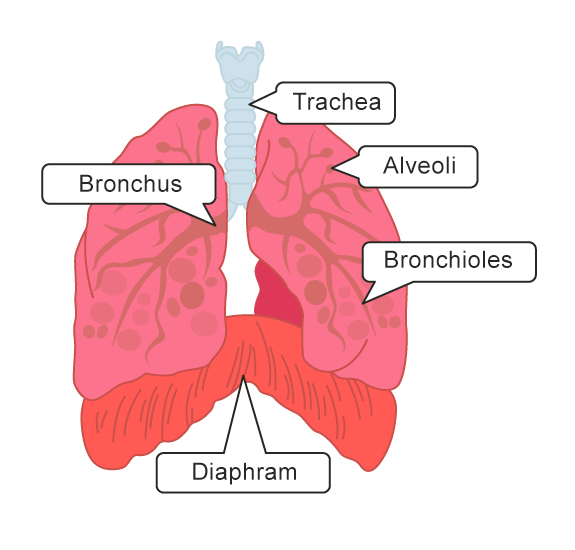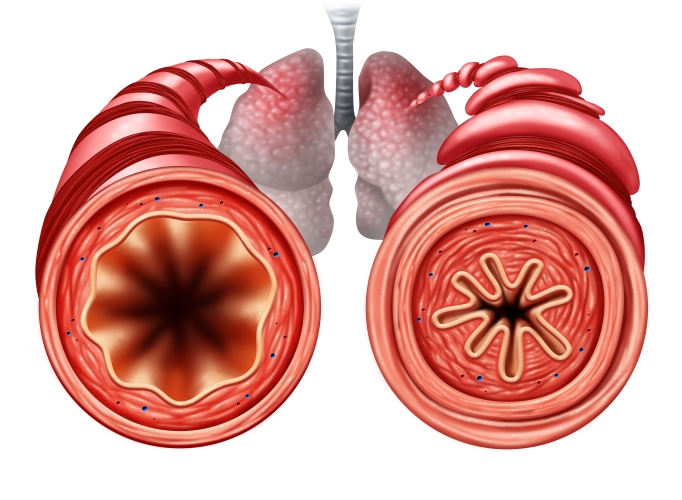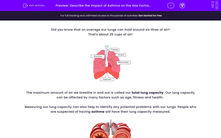Did you know that on average our lungs can hold around six litres of air?
That's about 25 cups of air!

The maximum amount of air we breathe in and out is called our total lung capacity. Our lung capacity can be affected by many factors such as age, fitness and health.
Measuring our lung capacity can also help to identify any potential problems with our lungs. People who are suspected of having asthma will have their lung capacity measured.

Asthma is a condition of the lungs. The airways are sensitive, often getting swollen and narrowing. Things like pollen, hair and dust can trigger an asthma attack. This is when the airways narrow making it difficult for air to pass through as we breathe. This can lead to coughing, wheezing (a whistling sound when breathing) and a tight chest.
Asthma sufferers may also get a build up of mucus in their lungs and airways leading to further difficulty breathing. Mucus is a sticky substance that is produced to trap bacteria. Too much of it can lead to increased coughing in an attempt to clear the airways of mucus.
People who suffer from asthma may have to use a reliever inhaler, which is where a medicine is breathed in and relaxes the airways, allowing oxygen and carbon dioxide into and out of the lungs easily.
In this activity, we're going to describe the impact that asthma has on the gas exchange system.








